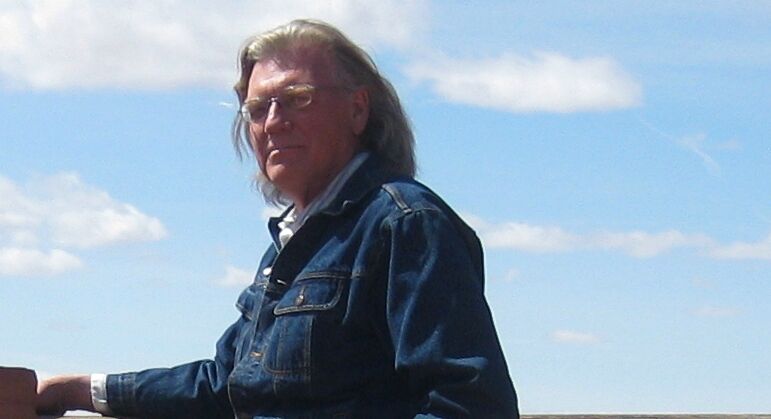In May of 2015, a group of Yale students visited the Maze District. Their purpose was a Sense of Place field study which, it was hoped, would develop into some sort of academic presentation. Among them was the documentary filmmaker Nelson Walker from Manhattan, who had just returned from Tibet where he had spent a year making a film about nomadic Yak herders.
Many a long hour I spent with a nervous Nelson who crouched in the passenger’s seat, camera pointed it at me, while a Yale grad student in the back seat asked questions. At one point I was asked what I did to pass the time while driving solo, since a typical trip to the Doll House area of the Maze lasted six to seven hours.
In answer, I cued up the opening chorus of BWV 93, a sacred cantata by Johann Sebastian Bach, and cranked up the volume so that the steering wheel vibrated with glee. There is footage somewhere in Mr. Nelson’s 25 hours of the smile that bloomed on my grimly determined face as Bach’s soaring pearly-gate voices began contrapuntally easing our way as we lurched onwards toward Cleopatra’s Chair.
Classical music has always been my first love among the arts, and over the 34 years of my tenure at the Maze, I listened to countless composers’ output wondering if Mr. Edward Abbey was correct in “Desert Solitaire,” in the chapter on he Maze no less, when he unequivocally states that it is the music of Anton Webern, Schoenberg and Berg that best expresses the spirit of the desert. He dismisses Bach as “…suggesting the sea.”
A decided advantage of a job that requires spending so many hours driving jeeps in the Canyonlands is the opportunity it affords of letting various types of music frame the landscape as one oozes meticulously along. On my innumerable patrols into the Land of Standing Rocks, I listened to everything from Josquin to Harry Partch trying to determine if Mr. Abbey was right.
Then one day as I scratched my beard trying once again to figure out how Mr. Abbey could possibly have immediately dismissed the music of Bach, I recalled Beethoven’s reverential statement (referring to the German translation of Bach’s name, which would be “brook”) “ …his name is Brook but it should be Ocean!” Mr. Abbey, come on now…
Why then should Bach’s music not be considered as expressive of the spirit of the desert, especially this particular neck of the desert? Looking out from Grandview Point or any of the mesa-top overlooks in Canyonlands, one gets a profoundly oceanic feeling.
But of course, the oceanic quality Beethoven was talking about had nothing to do with depiction; the classically envisioned landscapes of the west are best left to the swelling major chords of Hollywood. This oceanic quality in Bach’s music goes much further; since Bach composed entirely from a tradition of the sacred; music for him was very much a spiritual calling, and it is the oceanic spiritual quality, its endless depths and ineffable significance that Beethoven had in mind.
Aldous Huxley, in “Heaven and Hell,” his major essay on the visionary experience, suggests that perhaps we regard precious stones as precious because they remind us of the visionary realm: “something far more deeply interfused” with an echo of spirit and significance, radiant and glowing beyond the reach of words. We are uniquely blessed with expansive masses of sparkling sandstone all around us that in certain light seem gem-like, the entire rocky desert lighting up on a late October sunrise with the visionary grandeur of an impossibly colossal New Jerusalem. And what could better express this and give meaning to it than the music of Johann Sebastian Bach, especially the choral works?
Certain backcountry Bach moments stand out for me: listening to the opening chorus of the St. John Passion while thunderous steel-colored storm clouds pour over the Orange Cliffs and gale-force winds howl around Elaterite Butte. Or in September 2009, hearing an unexpected virtuoso pianist from Cuba named Jorge Luis Pratz play the Central Aria from BWV 147, improvisationally, accompanied by the descending trill of canyon wrens and the soft purl of the mighty Colorado. When I die, that is the heaven I hope to land in.
Gary Cox, recently retired, worked for 34 years year-round as a backcountry ranger in the Maze District of Canyonlands National Park. He now lives in Moab and is pursuing a writing career. His second novel, “Ode to Johann Sebastian Bach,” has just been published.



